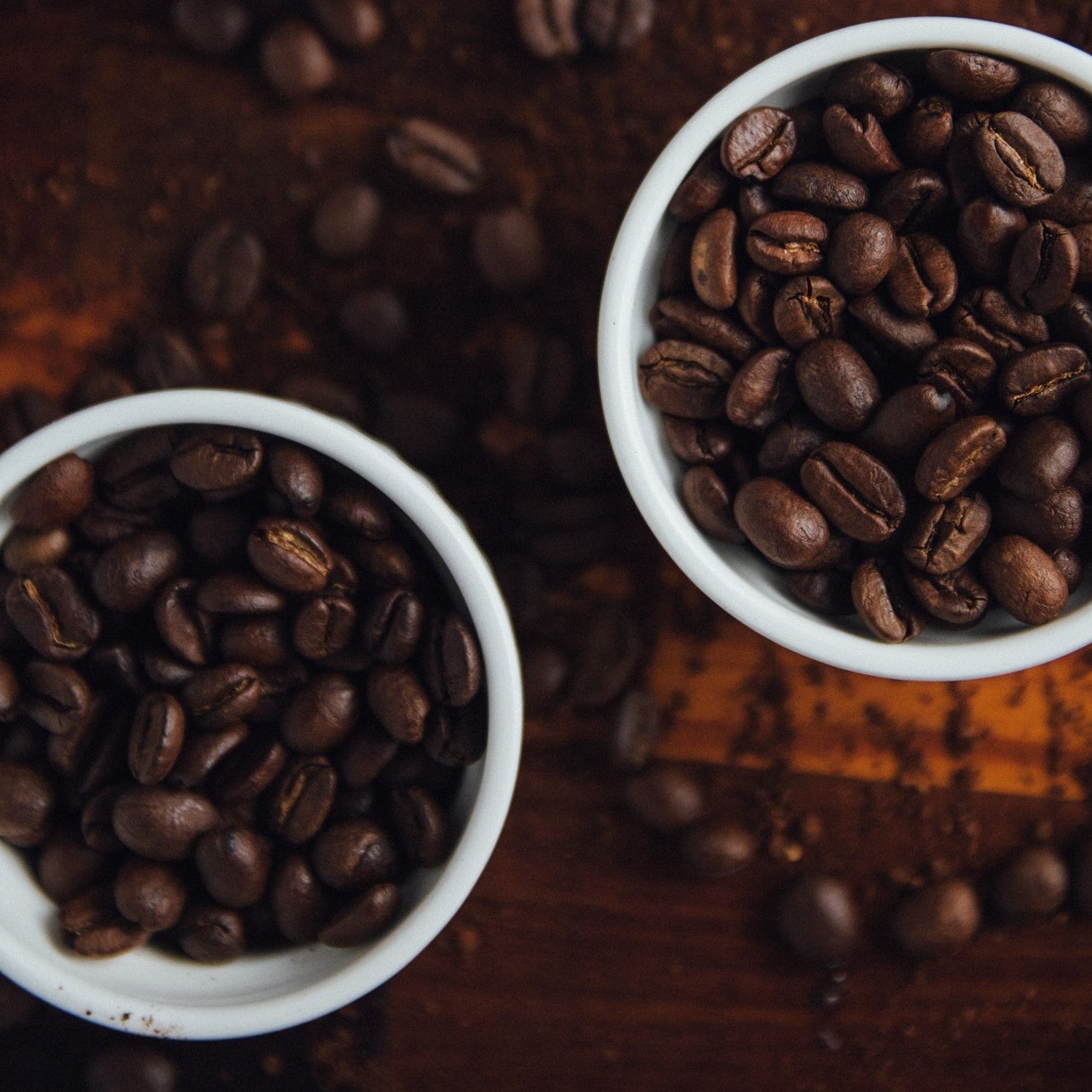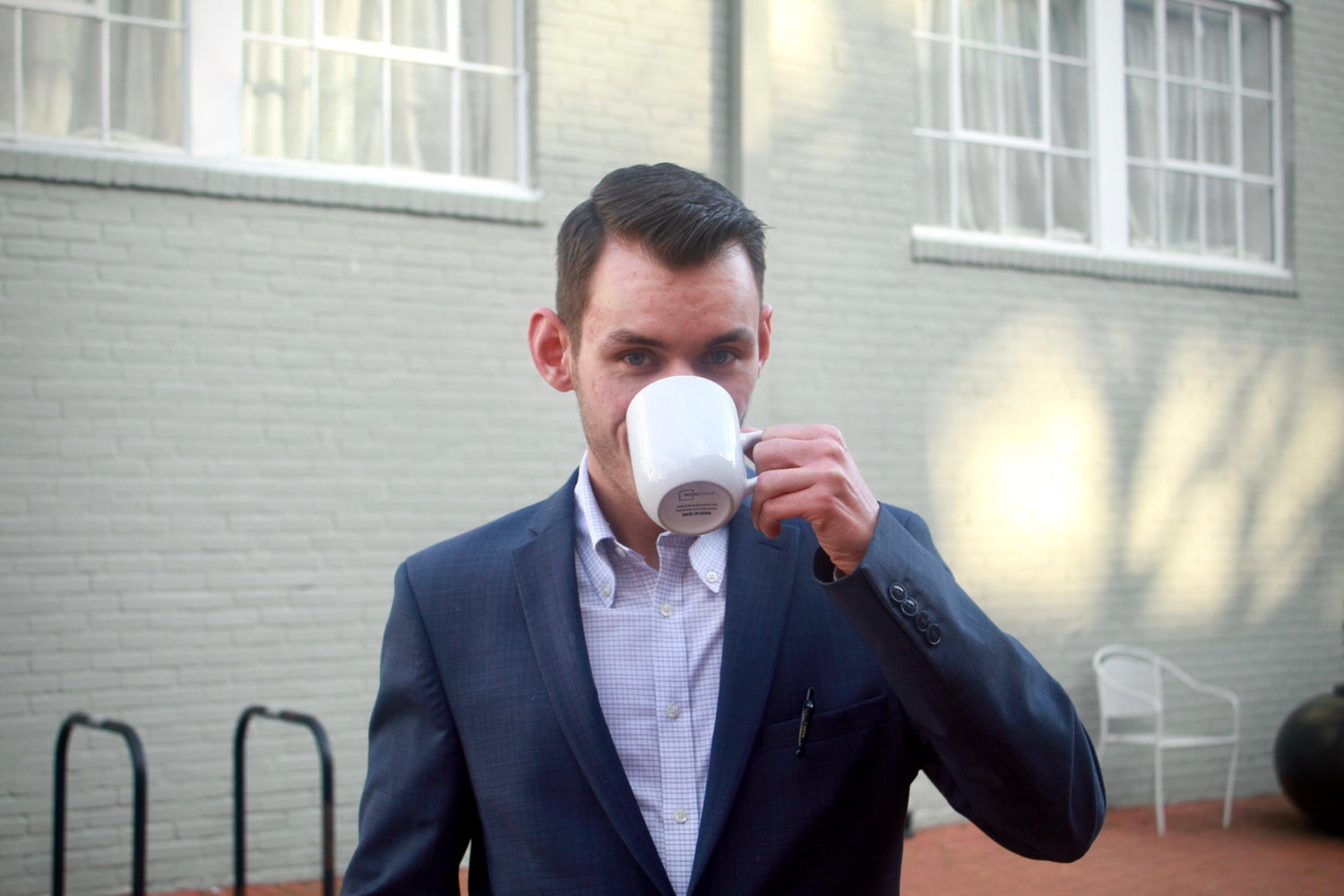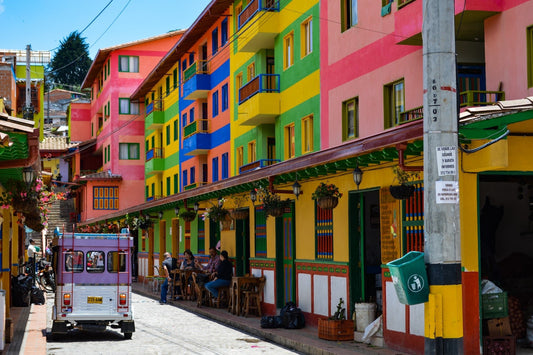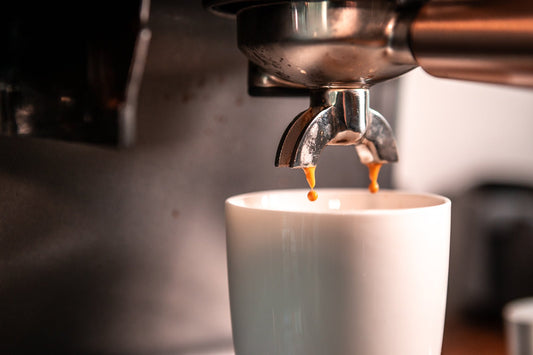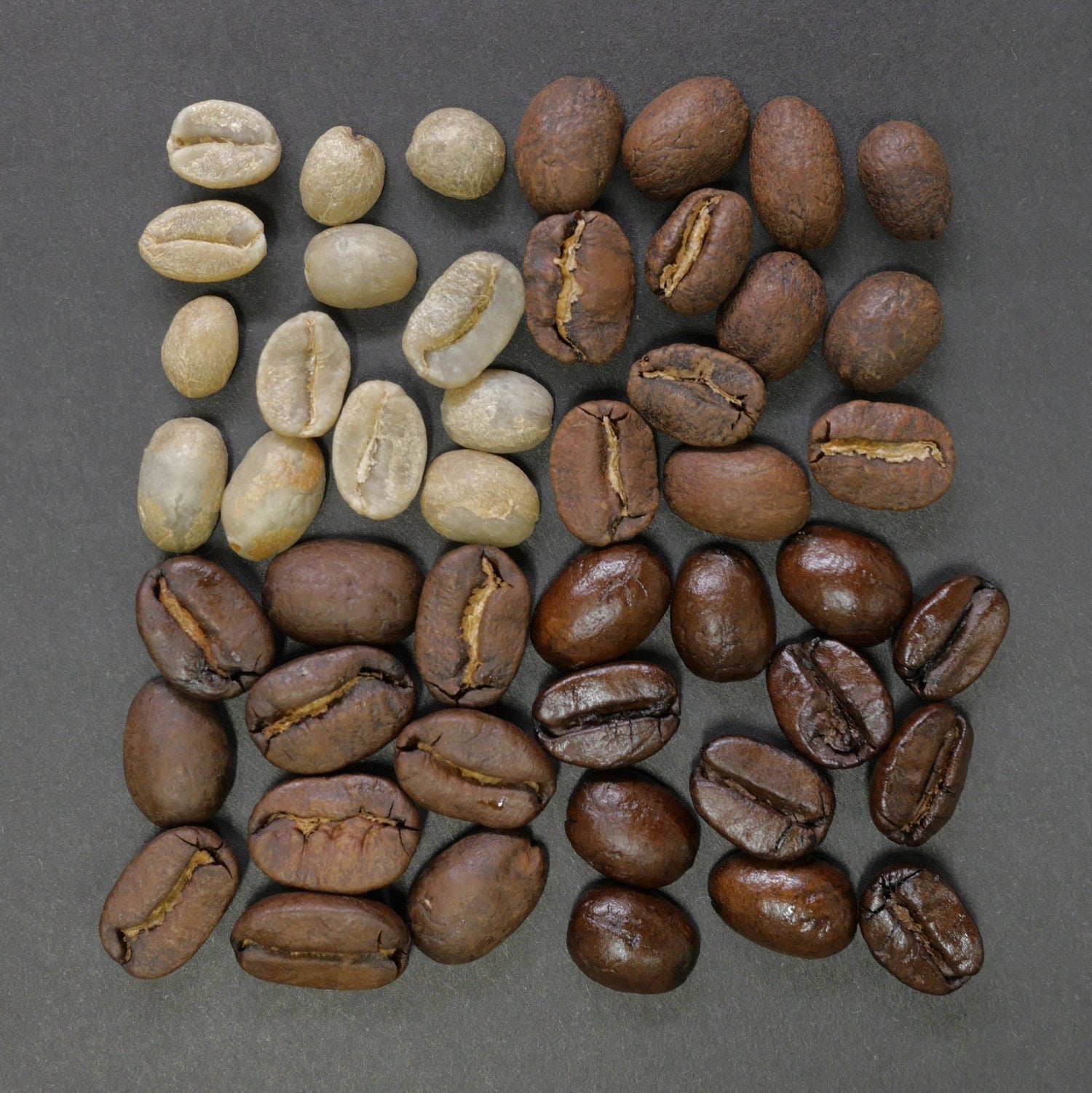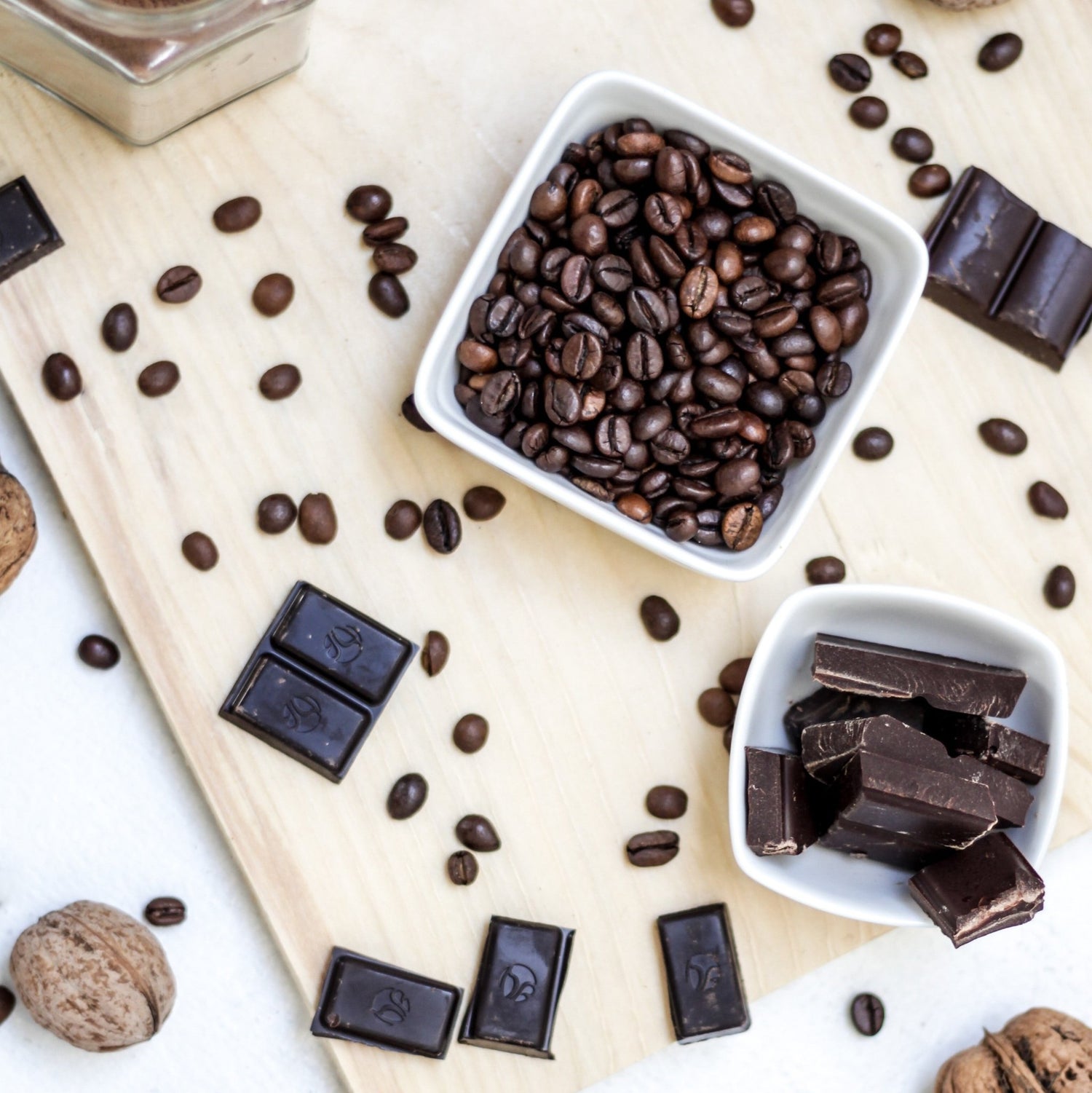When thinking about what makes some coffee taste better than others, I used to mainly focus on the quality and freshness of the coffee beans. I literally built a business around it! But I never really thought about the other big factor impacting the taste of coffee—the water. I recently did a deep dive into water (pun intended) for brewing coffee and thoroughly brewed, tested, and tasted coffee made with different waters to answer the ultimate question...
What is the best water for brewing coffee?
Purified water is the best water for brewing coffee because of its affordability, availability, and mineral content, which makes it ideal for brewing properly extracted coffee without causing any corrosion and therefore preserving the life of espresso machines and coffee makers.

It wasn’t too long ago, when I first got into coffee, that I made a very revealing discovery, and I want to share it with you. So, you know how we usually make our coffee with regular tap water? Yeah, that's how my parents always did it too. But a while back, I had this odd experience on a sailing trip. The coffee I had there introduced me to a whole new world of flavor. I thought it was the sea breeze and the great mood, but get this: we used bottled, purified water on the boat. I know, it's not life-changing, but it did make me wonder...
When I got back, I became super curious and started experimenting. And guess what? The type of water you use has a huge impact on how the coffee tastes. I tried all kinds of water—tap water, bottled water, even mineral water—and every time, it was a drastically different result. It seriously blew my mind. Who knew that something as simple as water could change the whole coffee game?
As coffee enthusiasts, we understand that the journey to the perfect cup of coffee is a multifaceted endeavor. It involves more than just selecting the finest beans and mastering the brewing technique. One often underestimated element that plays a pivotal role is the water you use. The quality of your water can profoundly affect the flavor, aroma, and overall enjoyment of your coffee, but to understand WHY it is so important, we need to delve into the three fundamental components of high-quality coffee water: contamination, water hardness, and buffering capacity.
1. Contamination: clean water for proper taste
Water, a remarkable universal solvent, has the unique ability to absorb a diverse array of minerals, ions, and salts. While some minerals, such as sodium, magnesium, and calcium, are considered beneficial, others can introduce unwanted flavors and odors. For instance, chlorine, an essential element in treating city water supplies, ensures safety but can result in an off-putting taste if present in higher concentrations. Moreover, copper and sulfur, originating from sources like underground aquifers and plumbing, can impart undesirable metallic and sulfurous notes to your water.
To gauge the presence of these dissolved solids, a total dissolved solids (TDS) meter such as this one proves invaluable. This tool measures all dissolved substances, providing insight into overall water cleanliness. While many urban areas boast clean tap water, it's important to remember that the journey from source to tap might involve pipes containing lead, requiring additional vigilance.

2. Water hardness: mineral ions for proper extraction
Water hardness, determined by the concentration of dissolved calcium and magnesium ions, is a critical aspect of coffee water. These minerals play a pivotal role in extracting flavors from coffee grounds. When it comes to water hardness, we often use terms like "hard" and "soft" water. These terms refer to the presence of mineral ions—primarily calcium and magnesium—in the water.
Hard water, characterized by higher concentrations of calcium and magnesium, can lend a robustness to your coffee's flavor. However, excessive hardness can lead to unwanted consequences, such as limescale buildup in your coffee maker, which can impact its efficiency and longevity. On the other hand, soft water with lower mineral concentrations might result in a lackluster coffee experience as it struggles to adequately extract flavor from the coffee grounds.
In the United States, the majority of residents contend with hard water. To optimize your coffee, aim for total hardness levels between 50 and 175 mg/L (~ 50 and 175 ppm) and calcium carbonate levels around 60 mg/L (~ 60 ppm), as recommended by the Specialty Coffee Association of America.
Water hardness test strips such as these are a handy and affordable tool for assessing your water's mineral content and also inform you of the presence of any contaminants in your drinking water!
3. Buffering Capacity: resisting pH swings
Buffers are substances that resist changes in pH, thereby stabilizing solutions. In the context of coffee, dissolved carbonates within water act as buffers, providing stability to the brewed coffee's alkalinity. This is crucial because coffee itself is acidic in nature. Without sufficient buffering capacity, the acidic compounds in coffee can run rampant, resulting in an astringently acidic brew that lacks the nuanced flavors we want.
Buffers ensure that the acidity doesn't overpower the full range of taste notes, allowing you to savor the intricate subtleties within each sip. The alkalinity of coffee water, thanks to buffering, acts as a balancing force, preventing excessive acidity dominating the flavor profile.
Shifting our focus from the foundational elements of ideal coffee water, let's step into the realm of practicality—an exploration of different water options for your brewing method. When it comes to choosing the right water for brewing coffee, there are a few options to consider. One popular choice is using filtered tap water, while another option is using bottled spring water, which can provide a consistent and reliable source of water for brewing. Let's explore some of these options in a bit more detail.

Is purified or distilled water better for coffee brewing?
Distilled water should not be used to brew coffee. It lacks the minerals necessary to extract flavor from coffee and will corrode your coffee maker. Instead, use purified water, which contains crucial minerals to properly extract coffee and preserve the lifespan of your coffee maker.
It might be tempting to assume that ultra-pure distilled water is an excellent choice for brewing coffee due to its pristine nature, but when it comes to coffee, distilled water falls short in more ways than one. Distilled water lacks the essential minerals required to extract the full range of flavors from your coffee grounds. Its ultra-low mineral content can result in a bland and lackluster coffee experience, devoid of the nuanced tastes that make coffee so captivating.
And sure enough, when I attempted to pull an espresso shot using distilled water, the espresso came out looking and tasting thin, with far less crema (the foamy layer), which is one of the best parts of espresso! The espresso was acidic and didn't have any of the flavor I am used to from my coffee beans.
But the drawbacks don't end there. Distilled water's purity might actually be its downfall when used for brewing coffee. With such a low mineral content, distilled water has a voracious appetite for minerals, and it will attempt to replenish its mineral deficiency by leaching minerals from your coffee maker. This process can lead to corrosion, particularly in coffee makers with components made from metals like iron. The corrosive nature of distilled water can dramatically shorten the lifespan of your machine, rendering it susceptible to rust and degradation.

On the other hand, purified water emerges as a far more suitable choice for coffee brewing. Purified water is derived from a city water supply and undergoes additional purification steps, such as reverse osmosis and ozonation. These processes effectively remove contaminants like copper, chloride, and lead. Moreover, organic contaminants like sulfate, arsenic, phosphorous, and nitrate are significantly reduced, ensuring that your water serves as a clean canvas for brewing.
The ozonation step in the purification process introduces an extra layer of protection by infusing ozone (O3) into the water. This ozone diffusion acts as a guardian against biological contaminants, including bacteria and viruses, enhancing the safety of your brewing water.

Is purified water or spring water better for coffee brewing?
Purified water is generally better than spring water for brewing coffee. Purified water is often low enough in minerals (calcium and magnesium) to minimize limescale buildup and protect the lifespan of your machine while still extracting coffee properly.
Purified Water: The Precise Balance
Purified water boasts a distinct advantage when it comes to brewing the perfect cup of coffee. One of the primary factors that sets purified water apart is its carefully regulated mineral content. In the realm of coffee brewing, the presence of minerals, especially calcium and magnesium, is vital for optimal flavor extraction. However, striking the right balance is key.
Purified water is meticulously treated to reduce mineral concentrations to levels that are both beneficial for flavor extraction and machine longevity. By minimizing the presence of minerals, purified water helps prevent the buildup of limescale within your coffee maker or espresso machine. Limescale accumulation can compromise the efficiency and lifespan of your equipment, making purified water an excellent choice for preserving your investment.
When using spring water to pull an espresso shot, the resulting shot was delicious! It had complexity, intensity, color, and a nice crema. It wasn't too acidic—just right. It certainly blew distilled water out of the park, but even when compared to the espresso shot pulled with spring water, it outperformed.
Spring Water: The Natural Choice
While spring water evokes images of purity and natural freshness, it might not always be the ideal choice for brewing coffee. Spring water's mineral composition can vary widely based on its source and location. Some spring waters can have a high mineral content, potentially leading to excessive hardness that affects coffee flavor and equipment integrity.
While certain spring waters might provide suitable mineral levels for coffee extraction, the inconsistency in mineral content can pose a challenge. Achieving a consistent brew can be difficult when working with water that lacks a standardized mineral profile.
With my beans, the spring water did not brew a balanced shot. I did not look into the mineral content, but I suspect it was fairly elevated because the coffee tasted almost overextracted. I ended up using it in an Americano and adding creamer. I know—sacrilegious. If you drink your coffee in heavily flavored coffee-based drinks, spring water will be totally fine. However, if you drink your coffee black, maybe look elsewhere.

Can I use distilled water to make coffee?
Distilled water on its own is not recommended for coffee brewing. It lacks the key mineral ions necessary to extract the flavor from coffee grounds to make coffee and also preserve the life of the coffee maker. However, distilled water can be remineralized with specific filters or additives.
To utilize distilled water for coffee brewing, remineralization becomes essential. Remineralization involves reintroducing critical ions such as calcium and magnesium back into the water. These ions play a dual role: they ensure proper flavor extraction from coffee beans and interact with the interior of your coffee maker, preventing corrosion and prolonging its operational life.
One effective method of remineralization involves using products like Third Wave Water. Their convenient powders, composed of necessary ions, can be effortlessly added to distilled water, transforming it into a suitable brewing medium. For those seeking a more sophisticated solution, reverse osmosis and remineralization water filtration systems offer a customizable approach. These systems range in complexity and cost, providing a spectrum of options for long-term water enhancement that is also great for everyday drinking.

Crafting your coffee water: our recommendation
To attain excellent coffee water quality, adopt a two-pronged approach. First, address contaminants and unwanted odors through effective filtration methods, such as charcoal filters. Brands like Brita offer straightforward yet powerful solutions to enhance water quality, making them an ideal foundation for brewing.
Second, strike a harmonious balance between water hardness and buffering capacity by sourcing the right water. If your tap water falls into the acceptable range of 50–175 ppm for hardness, you're good to go! If not, think about whether purchasing purified water from the store or installing a simple reverse-osmosis water filtration system makes more sense for you. If you are serious about brewing coffee properly, I strongly recommend exploring reverse osmosis filters.
Implementing regular descaling practices for your coffee maker or espresso machine will also play an instrumental role in brewing consistent, good coffee. These practices extend the life of your equipment while also ensuring the extraction of desired flavors from the coffee grounds. Refer to your machine's manual for instructions on how to properly descale it.
For me, I have the benefit of living in a city with very good water. I run my tap water through a large Brita filter, and the water is good enough for brewing coffee. I am happy with the results. However, if I lived in a different place where the tap water was less ideal, I would 100% go with the purified water and just buy it by the gallon. I am the only one in my household who drinks coffee every morning and sometimes twice per day, so a water filtration system is not optimal and a bit overkill. On the other hand, if I had a family of 3 or 4 drinking coffee daily, I would seriously consider a reverse osmosis system with a remineralizing filter. It would be far cheaper, more convenient, and more sustainable in the long term.
I'd like to know what kind of water you like to use when brewing your coffee and if this article has inspired you to explore some alternative options for yourself. Drop a comment below!
